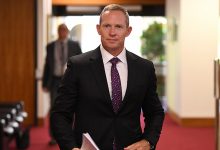The Queensland state Labor government has appointed Australia’s first dedicated minister for hydrogen, with Mick de Brenni appointed as the new minister for energy, renewables and hydrogen in the new Palaszczuk ministry.
It is the first appointment of an Australian minister explicitly dedicated to hydrogen, providing an indication of the key role the Palaszczuk government expects hydrogen to play in both the local economy and as a major new export opportunity for the state.
Mick de Brenni will become the second member of an Australian state or federal cabinet to be appointed to a dedicated ‘renewables’ ministry, after current NT minister for energy and renewables, Natasha Fyles.
The new Palaszczuk ministry is expected to be sworn in Thursday, after Queensland Labor secured a strengthen majority at the October election.
The appointment of a dedicated minister for hydrogen was welcomed by the Australian Hydrogen Council, which said the appointment recognised the significant opportunities that hydrogen presents for the Queensland economy.
“By creating a hydrogen portfolio, the Queensland Government recognises hydrogen as an important new industry in the economic recovery, and a great opportunity for Queensland,” Australian Hydrogen Council CEO Fiona Simon said.
“This portfolio is also well-positioned with Minister de Brenni’s other portfolios of energy, renewables, and public works and procurement. These are complementary portfolios for realising Queensland’s hydrogen objectives.”
“Even before today’s announcement, Queensland has one of the more mature approaches to the hydrogen industry including a Queensland Hydrogen Industry Strategy, development fund, prospectus, investor toolkit and guidance for local governments on hydrogen developments,” Simon added.
During the previous term of the Palaszczuk government, de Brenni served as the minister for housing and public works, along with responsibility for sport and the digital economy. Prior to entering politics, De Brenni worked as trade unionist, having held various roles with the Textile Clothing and Footwear Union of Australia, United Voice and the Queensland Council of Unions.
The Palaszczuk government was elected to a third term of government, with a strengthen majority, after an election campaign that had a heavy focus on the state government’s response to the Covid-19 pandemic.
The campaign also saw parties distinguish themselves with different visions for the state’s energy system, with Queensland Labor pitching an ambitious plan for new investment in renewable energy and green export industries.
De Brenni will be tasked with delivering on Labor’s plans for up to three new renewable energy ‘corridors’, with a potential to support up to 16GW of new wind, solar and storage capacity, and which has been supported by a $140 million funding commitment from the Queensland government.
The Queensland government will be required to drive new investment in the state’s renewable energy sector, with the government currently trailing behind the investment paced needed to achieve its stated goal of 50 per cent renewable electricity by 2030. Queensland currently sources around 16 per cent of its power from renewable energy sources, and current project commitments place the state on track to reach just 38 per cent renewable penetration by 2030, according to an analysis completed by Green Energy Markets.
During the election campaign, Queensland Labor announced that it would make up to $500 million in direct investments in new clean energy projects, to be managed by the government owned CleanCo.
However, both parties sought to demonstrate their support for Queensland’s coal and gas sector, with Queensland Labor balancing its support for a larger renewable energy sector with a flurry of approvals of new coal mines across the northern regions of the state.
Mick de Brenni will replace Anthony Lynham as the state’s energy minister, after Lynham announced that he would be retiring from Queensland politics ahead of the 2020 election.










